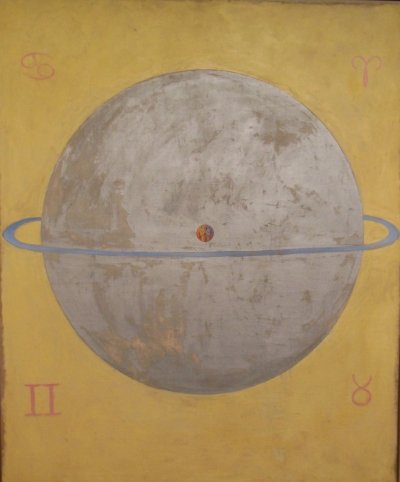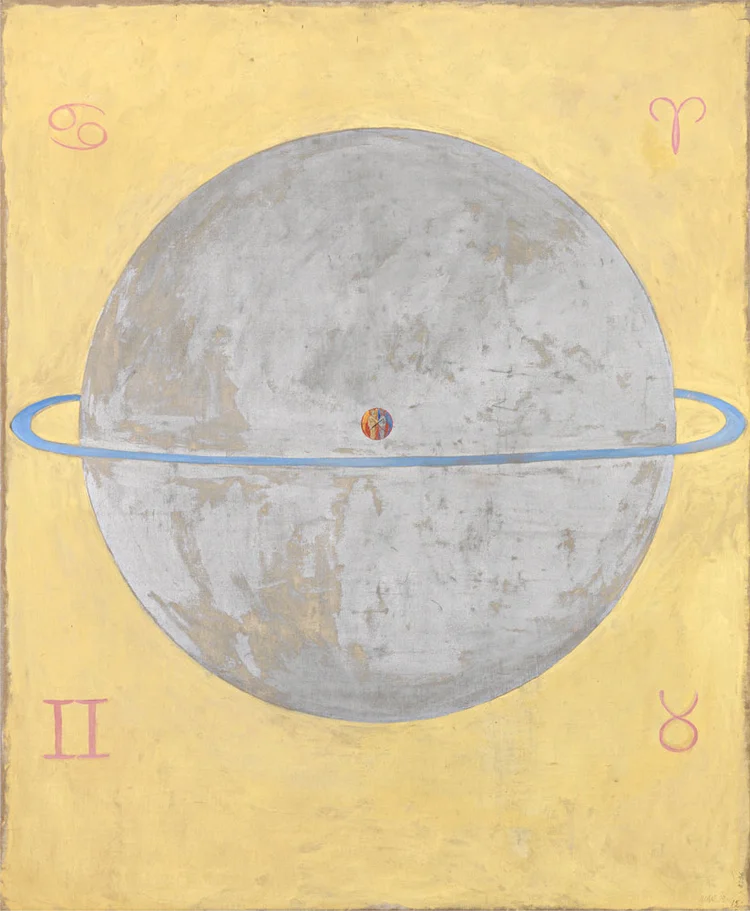Q: What connections did the surrealists have with astrology?
AB: Sporadic unfortunately, and it varied with each individual. Astrology, like poetry, demands not only that you commit yourself to it entirely but also requires specific signs of a predestined nature. For my part, I learnt the basics of astrology around 1927. After that, I was able to benefit a little from Pierre Mabille's extensive knowledge of the subject and he introduced me to Fludd, which allowed me to go beyond the deadly mediocrity of most of modern texts. The surrealists generally took a lively interest in astrology, seeing it from a poetic perspective, without going very deeply into it.
Q: If we can talk of astrology as being considered as a lyrical game, would you go as far as describing astrology as the tool of an architecture of universal relationships?
AB: Not being a geometrician, even less so in the ancient sense of the term, I'm not qualified to talk about that. What I've always valued enormously in astrology is not so much the lyrical game to which it lends itself, as the multi-layered logical game which is a necessary part of it and on which it is founded. Quite apart from the very subtle means of evaluation that astrology uses and its predictive abilities, I consider its capacity for stretching and exercising the mind to be second to none. To unravel a destiny, beginning with the planetary placements, their aspects, their signs and houses, depending on the position of the Ascendant and Midheaven - this requires more than enough mental dexterity to silence any attempts at ridicule and, compared with this sophistication, conventional logical reasoning comes out looking like child's play.
Q: Would you say that astrology could be seen as the golden language of analogy, in the way that counterpoint and harmony are to music?
AB: I have to be excused to some extent, as I lack the musical vocabulary. I would say though, that astrology is the 'golden language' of analogy in that it has created a vast resource of corresponding references between man and nature. I can think of no other system with as great an aspiration to harmony (in the sense that Fourier used that word).
Q: If we take the thorny question of quality in astrology, what do you think about the responsibility involved in being an astrologer?
AB: I consider that responsibility to be enormous, and I also think that the 'International Centre of Astrology' should, as a matter of urgency, warn the public against the venal enterprises and the shameful exploitation of people's credulity which are bringing it into disrepute (newspaper horoscopes etc).
Q: Do you see any common ground between the belief in free will and that of a future that can be predicted?
AB: This brings us back I think, to the case of Jerome Cardan,18 who allowed himself to die of hunger at the age of 75, so that the prediction of his horoscope would be fulfilled, and the truth of astrology would be vindicated. I don't think anything needs to be added to what Grillot de Givry said about this.
Those on the side of free will claim that the death was accomplished through the means of free will; but their opponents maintain that the fatal event was nonetheless predetermined and that it was written in the book of fate that he was to die of hunger whatever might be the reason for this kind of death.
This interview was originally published in the French magazine ‘L' Astrologue’ No 4, 1968
























